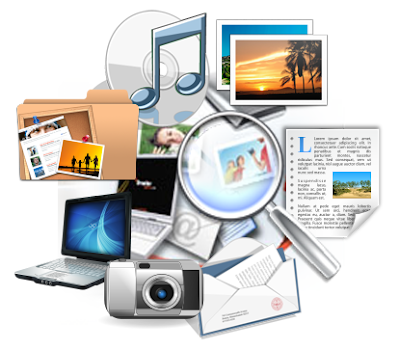Over the course of your computer's lifetime, numerous junk files accumulate in hard disks. Those junk files are created every time you install or uninstall programs, surf the Internet, edit documents, etc. No one would love junk files left in their PC, because those files are eating up disk space, weakening your PC performance and pulling down working efficiency�they do nothing good. So, you may want to know how to identify junk files in our PC, and how to remove them. This article will point out five large sources of junk files, so you could identify and delete them safely.
Below five types of files can be identified as "junk files".
1. Temporary files created in the process of software installation: When software is installed, the extracting process would create temporary files. If the software program has design flaw or your system has problems, those temporary files, which end with the extension .TMP, will be left behind in hard disks.
2. Temporary files created from software running: Programs create temporary swap files primarily for backup. For example antivirus software or System Checks always generate temporary backup files, such as *.old, *.bak. Those files could amount to several hundred MB.
3. Files left after software uninstall: After you uninstall a software program, you would find that a lot of file remnants, such as file folders, and *.dll files, are still left behind in your hard disk and make your registry cluttered. That is because Windows cannot conduct a thorough uninstalling. Improper design of software program is also a cause for creating junk files.
In most time, computer users who are not skilled at software or computer would directly delete all the program files. In fact they get it wrong. The only outcome by doing in this way is to have even more junk files left behind. What's worse, the registry would become more cluttered or corrupted. A registry of deteriorated condition could only make computer overall condition decline.
4. Temporary Internet files: When you surf the Internet, Web browser downloads pages, graphics and stores user's browsing history on your computer. Those caches not only take up a lot of room on your disk, but are likely to leak our private information.
5. Rarely used files: For most people, there are some types of files you would rarely use, such as instruction files (usually their extension is .hlp) and excessive font files. When you run Corel DRAW on your PC, its numerous and useless inbuilt font files would substantially slow down the processing speed. It is strongly suggested to delete unnecessary files to speed up your computer.
Once you have identified the above five types of files, you can take action to delete! Perhaps you may regard this "Identify & Delete" method too complex or troublesome; there are actually many other ways, e.g. Windows clean or optimization software, to clean junk files. Among these specialized tools we would recommend "TuneUp Utilities". With its fast, accurate, thorough cleaning performance, your system will always be kept in a compact and organized condition.
Author - PCWatch
Below five types of files can be identified as "junk files".
1. Temporary files created in the process of software installation: When software is installed, the extracting process would create temporary files. If the software program has design flaw or your system has problems, those temporary files, which end with the extension .TMP, will be left behind in hard disks.
2. Temporary files created from software running: Programs create temporary swap files primarily for backup. For example antivirus software or System Checks always generate temporary backup files, such as *.old, *.bak. Those files could amount to several hundred MB.
3. Files left after software uninstall: After you uninstall a software program, you would find that a lot of file remnants, such as file folders, and *.dll files, are still left behind in your hard disk and make your registry cluttered. That is because Windows cannot conduct a thorough uninstalling. Improper design of software program is also a cause for creating junk files.
In most time, computer users who are not skilled at software or computer would directly delete all the program files. In fact they get it wrong. The only outcome by doing in this way is to have even more junk files left behind. What's worse, the registry would become more cluttered or corrupted. A registry of deteriorated condition could only make computer overall condition decline.
4. Temporary Internet files: When you surf the Internet, Web browser downloads pages, graphics and stores user's browsing history on your computer. Those caches not only take up a lot of room on your disk, but are likely to leak our private information.
5. Rarely used files: For most people, there are some types of files you would rarely use, such as instruction files (usually their extension is .hlp) and excessive font files. When you run Corel DRAW on your PC, its numerous and useless inbuilt font files would substantially slow down the processing speed. It is strongly suggested to delete unnecessary files to speed up your computer.
Once you have identified the above five types of files, you can take action to delete! Perhaps you may regard this "Identify & Delete" method too complex or troublesome; there are actually many other ways, e.g. Windows clean or optimization software, to clean junk files. Among these specialized tools we would recommend "TuneUp Utilities". With its fast, accurate, thorough cleaning performance, your system will always be kept in a compact and organized condition.
Author - PCWatch

No comments:
Post a Comment